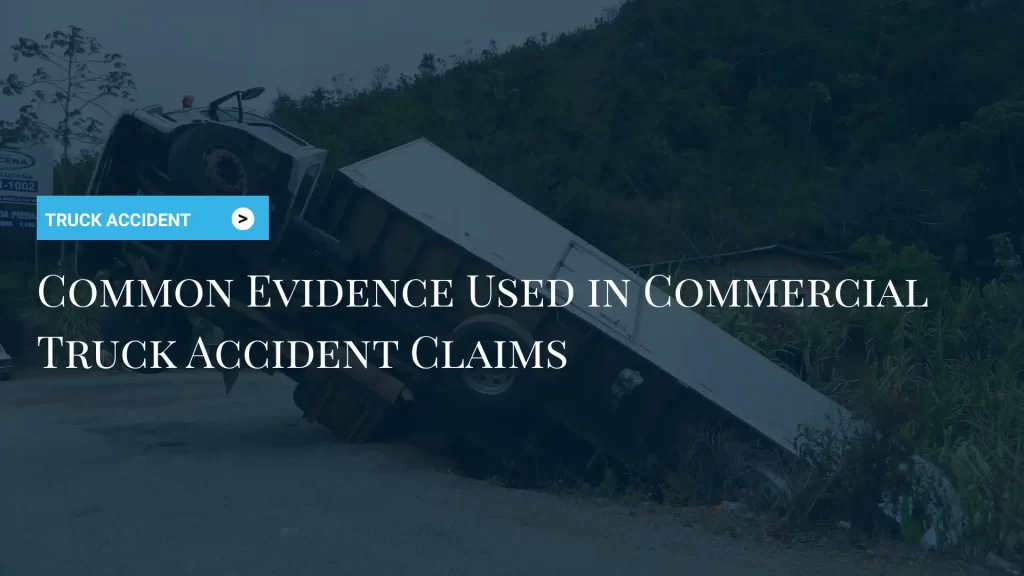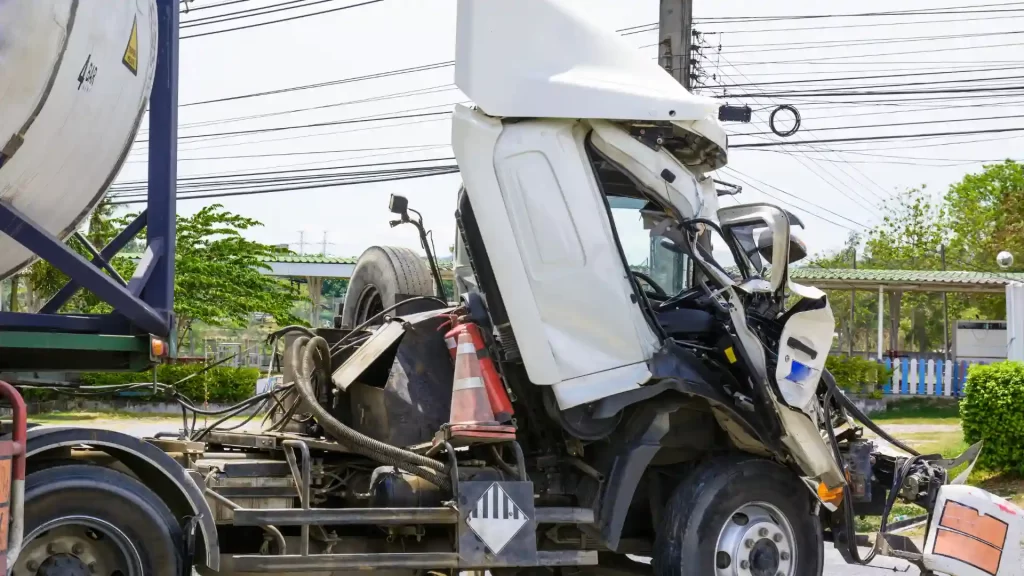
The results can be grave when a commercial truck collides with a car. People can get badly injured, vehicles can be damaged, and lives can change in an instant. In Arizona, including Phoenix, figuring out who caused the crash isn’t always easy. It takes strong proof—not just someone’s story—to show what happened and who should be held responsible, which is why gathering solid evidence in truck accident claims is so important.
Why Evidence Matters in Truck Accident Claims
Unlike typical car accidents, truck accident claims involve layers of liability. The driver, trucking company, maintenance provider, or parts manufacturer might share responsibility. Identifying the liable party—or parties—is difficult without proper evidence. Trucking companies and their insurers have their legal teams focused on reducing payouts. The stronger your evidence, the harder it is for them to dispute your claim, which is why knowing what evidence is important in a truck accident case can make all the difference.
Many truck accident cases in Arizona are based on the at-fault party’s negligence. To prove negligence, you and your lawyer must show that the responsible party breached a duty of care and that the breach caused the crash and your losses. Physical, digital, and testimonial evidence helps build that link.
Types of Evidence Used in Truck Accident Cases
Attorneys use a variety of evidence to build a compelling truck accident claim. Each type paints a complete picture of what happened, why, and who was at fault.
Black Box Data
Most commercial trucks have an electronic control module (ECM), also known as a “black box.” This device records vital information such as speed, brake usage, throttle position, and GPS data in the moments leading up to a crash. Retrieving black box data can confirm whether the truck driver was speeding, failed to brake, or made abrupt movements that contributed to the accident.
Hours-of-Service Logs and Logbook Violations
Federal trucking regulations limit the amount of time drivers can be on the road without rest. These rules are meant to reduce driver fatigue, a significant factor in many truck crashes. Hours-of-service logs indicate the duration of the driver’s work. In some cases, falsified logs reveal violations, which can directly impact fault and show negligence by the driver or trucking company.
Dash Cam Footage
Video footage from dash cams provides direct visual evidence of the crash. It can capture road conditions, driver behavior, and the actions of other vehicles. This footage may also reveal signs of fatigue, distraction, or aggressive driving that might not be apparent in written reports.
Maintenance Records
Federal law requires trucking companies to conduct regular inspections and maintain detailed records of their vehicles’ maintenance. These documents can show whether the truck was in proper working condition. A history of brake issues, tire wear, or engine problems may indicate negligent upkeep, making the trucking company partially liable.
Eyewitness Statements
Independent accounts from bystanders or other drivers can confirm what happened and support your version of events. Eyewitness statements are constructive when the facts of the crash are disputed or when the parties involved offer conflicting reports.
Accident Reconstruction
In complicated crashes, lawyers sometimes ask accident experts for help. These experts study the scene, look at clues like tire marks or broken parts, and use computers to rebuild what likely happened. Their work helps show how fast the vehicles were going, where they hit, and when it all took place. This information is crucial for determining who caused the crash.
Skid Marks and Debris
Photographs of skid marks, road gouges, or scattered vehicle parts can provide insight into how the crash occurred. For example, the length of skid marks may indicate that the driver attempted to brake too late. The location of debris can help determine the point of impact or whether the truck drifted into another lane.
Toxicology Reports
If alcohol or drug use is suspected, toxicology reports may reveal whether the driver was impaired. Trucking companies must comply with federal drug and alcohol testing guidelines, especially after a serious crash. These reports can become critical evidence in proving reckless or impaired driving.
Trucking Company Records
Beyond maintenance logs and driver files, trucking companies keep internal records that may expose larger safety issues. These can include hiring practices, disciplinary history, driver training policies, or past violations. A history of safety lapses can strengthen your claim that the company acted negligently.
Together, this evidence forms a detailed timeline and narrative, helping your attorney hold the right parties accountable and build a strong compensation case.
Who Is Responsible for Preserving Evidence?
 One of the biggest challenges after a truck accident is to secure all relevant evidence before it is lost or destroyed. Without quick action, some of that evidence can be altered, deleted, or “lost.”
One of the biggest challenges after a truck accident is to secure all relevant evidence before it is lost or destroyed. Without quick action, some of that evidence can be altered, deleted, or “lost.”
After you hire a lawyer, they can send a spoliation letter to the trucking company. This formal request tells the company to preserve all potential evidence. They could face legal consequences if they ignore the request and allow data to be destroyed. If that happens, your claim may gain strength.
Commercial trucks are sometimes repaired or scrapped soon after a crash. A physical inspection of the truck could reveal key issues—such as faulty brakes or worn tires—that would otherwise go undocumented. Your attorney can petition the court to grant access to the vehicle for inspection before it disappears.
At the same time, police reports, medical records, photographs, dashcam footage, and eyewitness information must be gathered immediately. As time passes, locating and preserving this evidence becomes increasingly complex. Acting quickly protects your rights and improves your ability to recover full compensation for your medical bills, lost income, and other losses.
Start Your Truck Accident Claim Today
Commercial truck accident cases are more complex than they appear. Every detail—from a missing brake inspection to a tired driver’s falsified logbook—can shift the outcome of your case. If you got hurt in a truck crash in Phoenix or anywhere in Maricopa County, don’t wait to get help.
Let Triumph Law Group handle the legal aspects while you focus on your recovery. Our team knows what to look for, how to help you and protect key evidence, and how to construct a claim that withstands scrutiny. Call 602-595-5559 today for a free consultation, or contact us online.
Related Post
Can Passengers File Personal Injury Claims After a Car Crash in Arizona?
What Happens If the At-Fault Driver Leaves the Scene of the Crash?
Common Evidence Used in Commercial Truck Accident Claims
T